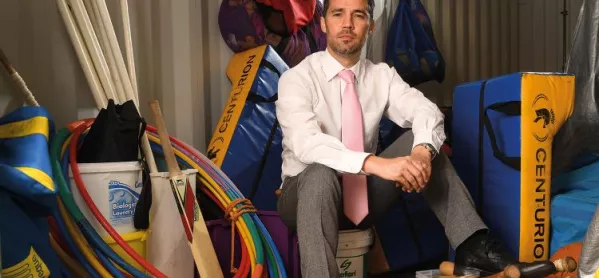- Home
- ‘Opening a free school is tough - but so worth it’
‘Opening a free school is tough - but so worth it’

I’m writing this during what is, for me at least, one of the most exciting times of the year. I’ve always thought there was something a bit special about the first week back after summer, and in recent years it’s got even better. That’s because each September we get to see the latest wave of free schools opening their doors and welcoming their students inside.
Looking at the clean hallways, and with fresh paint smells still lingering, an observer might find it easy to overlook how much work has gone into the project and how long the journey has been. Setting up a free school is a necessarily rigorous and time-consuming process, and it can take years for a group to create the school of their dreams as a physical entity. No matter how much time is planned out, though, it’s always going to be a bit of a last-minute rush to get everything ready for the first day.
Although I moved on last summer, I still remember very clearly going through this at my own school. As the principal and one of the founders of the Bedford Free School, the final few weeks of what should have been the summer holiday were frantic, as we raced to get everything ready in time.
There’s no question that I’m looking back through rose-tinted glasses; this was undoubtedly a stressful time and if someone had told me then that I would one day look back fondly on it, I would have laughed in their face. Even so, when I think about the school and the process of setting it up, I don’t think about the stress and the struggle, but the faces of the students on their first day.
Setting up a school from scratch is a huge undertaking, and it’s certainly one I questioned a few times along the way. But our experience, and that of so many others, shows that it is possible. The programme provides a clear process for how parents, teachers and communities can come together to create a new school. It’s almost a new form of local accountability, too, with people able to address the challenges that their community faces, rather than leaving it to technocrats or politicians.
‘Tension mixed with excitement’
Politics aside, there’s no question that having more good school places will benefit our young people, and is vital to the future success of the country. Any initiative that works toward this goal should be supported. Free school founders - and I’m speaking from personal experience here - have been hit with a range of criticisms over their motivations for getting involved in the first place. Hand on heart, though, the school leaders I’ve met to date have been focused on improving education in their local communities, and the schools that open up this week are eager to get stuck in and make a difference.
Obviously, there’s some tension mixed in with the excitement. We know that not all free schools have flourished, even if the actual number that has struggled is far lower than that excitedly parroted by some on social media. It’s obviously true that mistakes have been made at times, but across the country, free schools are showing signs of real educational excellence.
I’ve gone through the initial free school successes before so I won’t repeat myself by listing those in detail, but the fact of the matter is that whether through exam results, Ofsted inspections or parental preference, free schools are starting to shine. It’s still early days, but coming off the back of yet more fantastic GCSE and A-level results last month, I’m excited for the future of the programme.
We know as well that the policy is becoming more targeted with the current wave aiming to shine a spotlight on areas that have been overlooked for too long. This is essential, both for meeting the need for new school places and to create educational equality across the country, making sure that everyone can access a good school place.
That’s something that’s even more exciting than this week - the thought that in those areas where the educational standards aren’t up to scratch, or where there just aren’t enough places, people are out there who know they can make a difference and set up their own school. It’s a tough process - that’s why we’re here to help - but they’ll forget about all the stress and struggle when they officially open their doors for that first day.
Mark Lehain is the founder and former head of Bedford Free School. He is now director of Parents and Teachers for Excellence and interim director of the New Schools Network
Keep reading for just £1 per month
You've reached your limit of free articles this month. Subscribe for £1 per month for three months and get:
- Unlimited access to all Tes magazine content
- Exclusive subscriber-only stories
- Award-winning email newsletters


